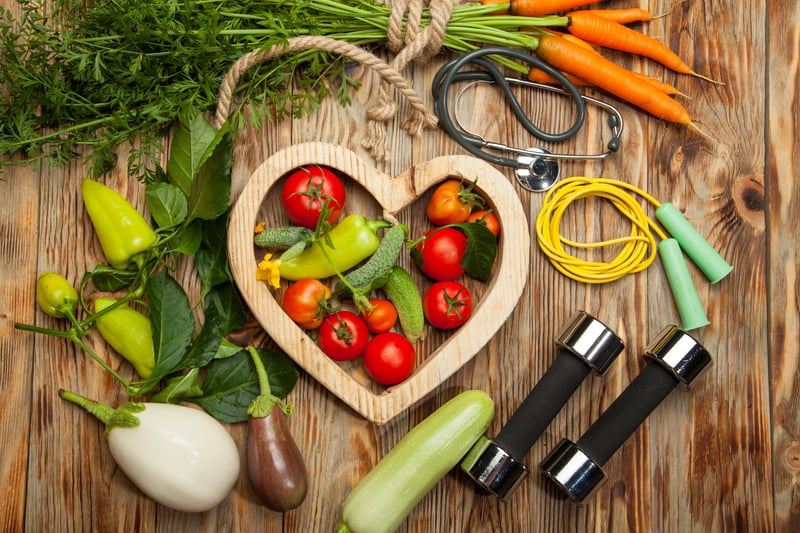Get Healthy!

- Cara Murez
- Posted July 13, 2023
Could 'Produce Prescriptions' Save $40 Billion in Medical Bills Among Those With Diabetes? Study Says Yes
A bunch of healthy fruits and vegetables could be just what the doctor ordered.
Nonprofit groups and public health agencies have experimented with the idea of a produce prescription over the years. Now, a new study simulates what would happen if patients with diabetes and diet-related conditions were given free or discounted produce and nutrition education nationwide.
The researchers, from the Friedman School of Nutrition Science and Policy at Tufts University in Boston, report it could have significant health benefits and save billions of dollars in health care costs.
"Of the strategies that can improve American's nutrition and diet-related health outcomes, evidence continues to build that produce prescriptions are a terrific option,"said senior author Dr. Dariush Mozaffarian, a cardiologist and professor of nutrition, who is also launching an initiative dubbed Food is Medicine.
"These innovative treatments are exciting because they can not only improve health and reduce health care spending, but also reduce disparities by reaching those patients who are most in need,"he said in a university news release.
The simulation predicted both clinical and financial benefits from making fruits and vegetables more accessible to food-insecure diabetic patients, including a savings of at least $40 billion in medical bills because of nationwide reductions in heart disease.
Typically, produce prescription programs allow a patient with a diet-related health condition to get vouchers or electronic cards for free or discounted fruits and vegetables that would be delivered to the patient's home or picked up from a grocery store or farmer's market.
The long-term benefits of this idea had not previously been investigated, according to this study.
This study estimated that a national produce prescription program for 40- to 79-year-olds with diabetes and food insecurity could prevent 296,000 cases of cardiovascular disease, such as heart attacks and stroke.
In addition to saving nearly $40 billion in health care spending, the strategy could also save $4.8 billion in lost productivity costs.
"When we looked at different subgroups of Americans, we found broadly similar benefits by insurance type, race and ethnicity,"said first author Lu Wang, a postdoctoral fellow at the Friedman School. "These results suggest that a national produce prescription initiative could benefit all Americans, highlighting the potential of Food is Medicine strategies to alleviate health inequities caused by food and nutrition insecurity and diet-related diseases."
The Friedman School team pooled studies of 20 smaller-scale initiatives and nationally representative datasets to run the simulation. It assumed that all American adults ages 40 to 79 who are living with diabetes and food insecurity would increase their fruit and vegetable consumption by an average of 0.8 servings per day. That's about equal to one small apple. It also presumed expected reductions to their blood pressure and body mass index (a measure of body fat based on height and weight).
"A national program could be enacted through inclusion of produce prescriptions as a covered health care benefit, already being piloted by several states under Medicaid section 1115 waivers as well as by private health care payers,"Mozaffarian said. "Our new findings help inform implementation to scale and evaluate these programs across the United States."
The findings were recently published online in the Journal of the American Heart Association.
More information
The American Diabetes Association has more on diabetes and food insecurity.
SOURCE: Tufts University, news release, July 7, 2023





